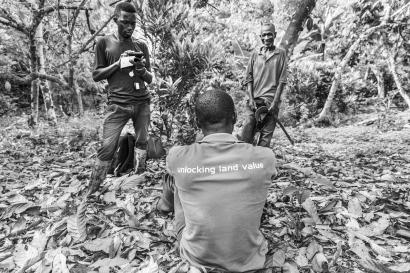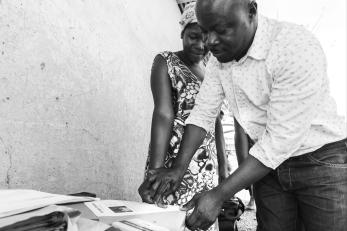Breadcrumb
Meridia: Unlocking land value, securing peace of mind

The scale of land insecurity around the world is daunting: approximately 72 per cent of people live on property they don’t have formal rights to or documentation for.
In many countries, property rights to land represent the key asset upon which people build their livelihoods — and landlessness is the best predictor of poverty.
The repercussions resulting in lack of documentation to one’s land are far-reaching: economic disempowerment, meagre agricultural yields, lack of investment in property improvements, and an overall sense of insecurity. Troublingly, informal and insecure property rights are both a cause and consequence of conflict: high levels of insecure property rights can ignite conflict, while violent disputes are often detrimental to property rights.
There are many challenges on the road to securing land rights — one being the ease of efficiently (and cost-effectively) collecting, validating and analyzing data. To date, most surveying and mapping has been done manually by a specialised surveyor, which makes the service unaffordable for the farmers who need it most. There’s a real and clear opportunity to leverage technology to cut costs.
There’s also an opportunity to support agribusinesses that are recognising that land access is critical for securing crops from their small farming partners and for preserving a sustainable supply chain. These companies feel increasingly pressured to engage more directly with these small farmers as they grapple with a crisis in their supply chains: limited projected supply and lower quality. But there is a data gap — a lack of digital identity, including land mapping, for these populations — and many agribusinesses know very little about who their farmers are or how to engage them.
Putting farmers on the map
Enter Meridia, an end-to-end solution for land and property documentation for farming communities in emerging economies. It’s here that land ownership is the first and most important path to prosperity.
Meridia is focused on the efficient collection, validation and analysis of data, and the processing and delivery of documentation. Its proprietary data collection, surveying and land documentation workflow platform makes surveying simple and yields high-quality results. Its technology is flexible, can be deployed globally, is firmly field-tested (with offline capability) and integrates seamlessly with drone and remote sensing data streams. Now, land mapping and processing services are within reach for millions of rural landholders previously unable to afford them.

Meridia’s land mapping and documentation services deliver major value to both smallholders and agribusinesses. For smallholders, these documents provide critical peace of mind and are “the first step towards a financially secure future,” unlocking services that can drastically improve their livelihoods. For agribusinesses, geospatial and identity data helps to better understand farmer partners and thus channel services that are uniquely impactful and highly valued.
Building connections for greater impact
In many countries where we operate, people have little — if any — protection for their land. The issue of land rights (and their resulting conflicts) is a fundamental one for us, crossing between our focuses on agriculture and financial inclusion.
In an effort to secure the landless, we’re connecting Meridia with expertise and insights to help them expand and grow in its mission to make equitable distribution and use of land accessible to all.
“Mercy Corps as a whole brings a deep understanding of smallholder agriculture to the table, while the team at Mercy Corps Ventures is already showing it’s tremendous value in areas such as financing, market entry and value chain analysis. We are pleased to have them on board as we start scaling our business.” — Thomas Vaassen, Co-Founder of Meridia
We see tremendous potential for emerging technologies to demystify and decrease the cost of the formalisation process. Combining technology with on-the-ground expertise can create unparalleled impact — securing land value and peace of mind for thousands of farmers we work with in sub-Saharan Africa, Latin America and beyond.